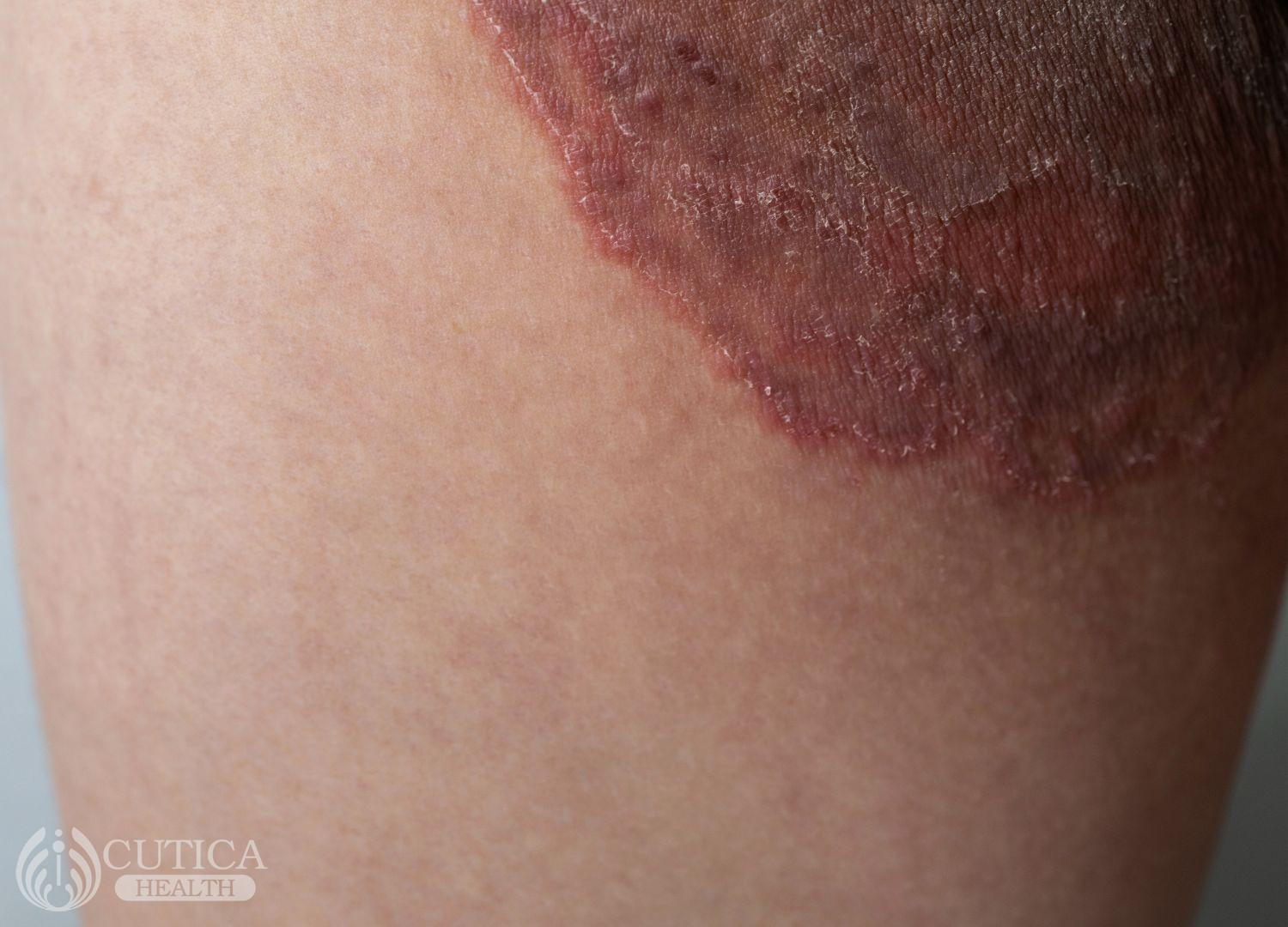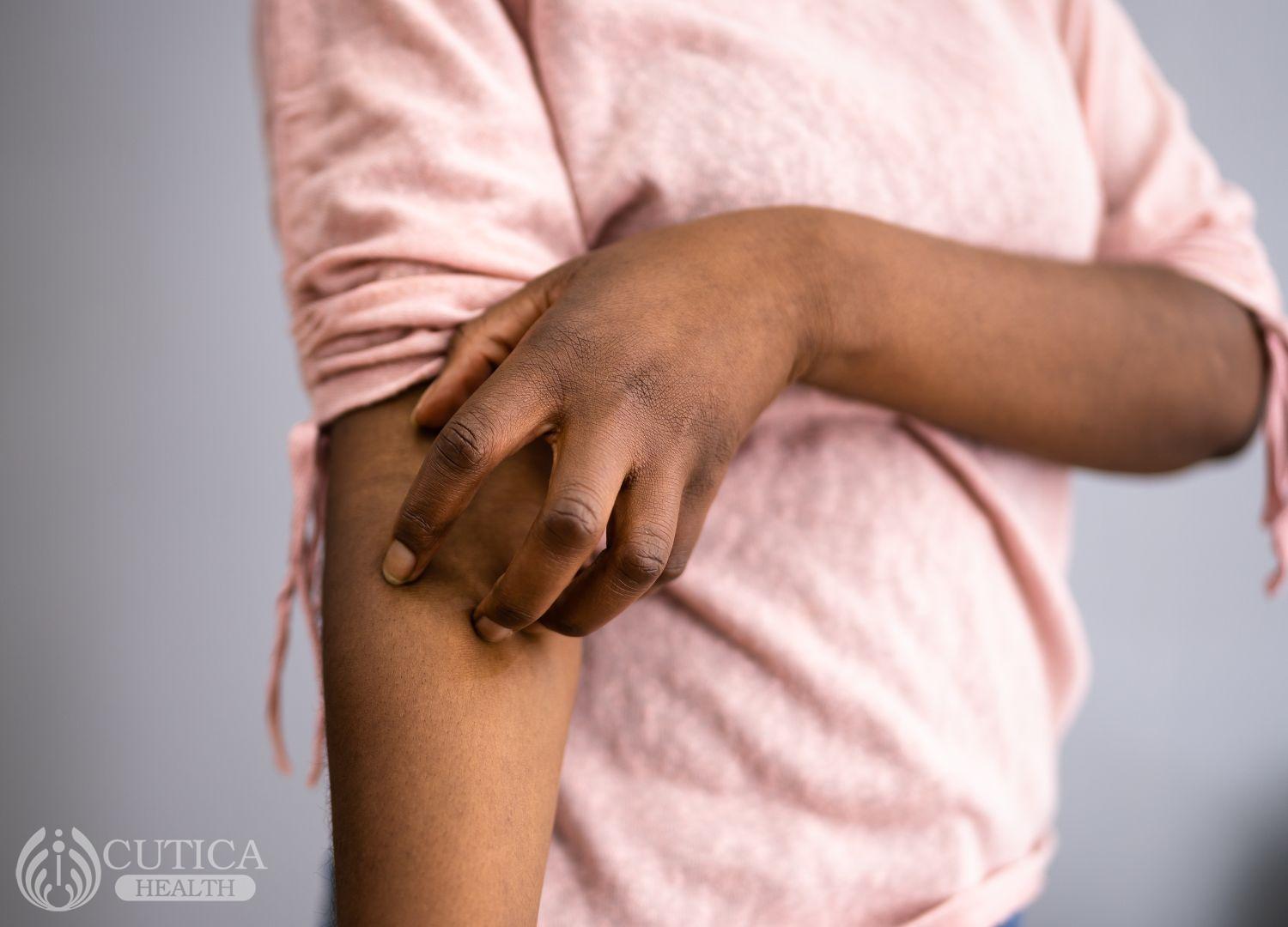Sam is known to be a great footballer and a prolific goal scorer. He is always a delight to watch on the pitch. But Sam struggles with an itch in his groin that just will not go away. It continues to itch even when he sleeps. He notices he feels worse after playing football.
What is jock itch?
Jock itch, also known as tinea cruris, is a common fungal infection that affects the groin area. This causes discomfort and itching because of the irritation from the infection. Jock itch is caused by a group of fungi called dermatophytes. It is contagious and can be transmitted from person-to-person by skin-to-skin contact or by contact with contaminated clothing or towels.
This fungus thrives in warm, moist areas such as the groin, inner thighs, and buttocks. People who sweat excessively or wear tight-fitting clothing are at an increased risk of suffering from jock itch. Also, poor personal hygiene, sharing contaminated items, and a weakened immune system increase the chances of suffering from jock itch.

How do I identify jock itch?
The symptoms of jock itch are simple to recognise and can prompt seeking medical care. Common signs include:
- Intense itching: The groin and other affected areas may feel intensely itchy, leading to a strong urge to scratch. This urge can become socially awkward and lead to embarrassment.
- Redness and irritation: The skin in the groin region becomes red and inflamed and may appear scaly or cracked. This usually follows continuous itching.
- Rash: A raised, circular rash with defined edges can develop, spreading outward from the groin area.
- Burning sensation: Discomfort and a burning sensation are often experienced, particularly during physical activity or sweating.
How do I manage jock itch?
# 1. Maintain proper hygiene
Keep the affected area clean and dry. Use a mild, fragrance-free soap and lukewarm water to cleanse the area. Gently pat the area dry with a clean towel, ensuring no moisture remains. Change into clean, loose-fitting underwear and avoid wearing damp or sweaty clothing.
#2. Topical antifungal creams
Over-the-counter antifungal creams, such as clotrimazole or miconazole, are often effective in treating jock itch. Apply the cream to the affected area as directed on the packaging. Continue treatment for the recommended duration, even if symptoms subside. Seek medical advice when symptoms persist.
How do I prevent jock itch?
- Wear loose-fitting underwear made of breathable fabrics like cotton to reduce moisture and friction.
- Change out of wet or sweaty clothes promptly, especially after exercise or sports activities.
- Avoid sharing personal items such as towels, clothing, or athletic equipment to minimize the risk of infection.
When do I seek medical attention for jock itch?
Most cases of jock itch can be effectively treated at home. However, it is crucial to consult a healthcare professional if:
- The symptoms worsen or persist despite the use of over-the-counter antifungal agents.
- The rash spreads to other areas of the body.
- The affected area becomes excessively painful, swollen, or oozes pus.
Your doctor will perform tests to make sure your immune system is intact and you do not have diabetes.

Conclusion
Jock itch can be an uncomfortable and bothersome condition. By maintaining good personal hygiene and using topical antifungal creams, you can tackle jock itch successfully. Remember, if symptoms persist or worsen, seeking medical attention is essential to ensure proper treatment.


